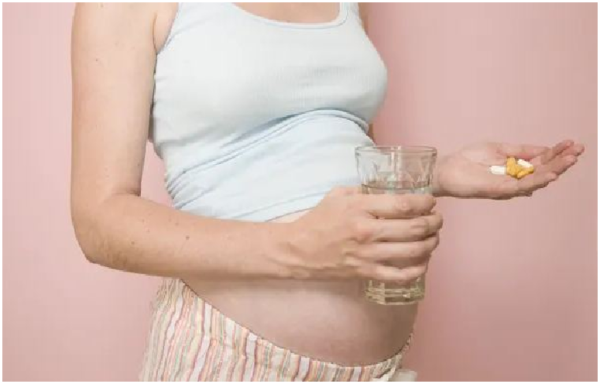A pregnancy is quite exciting but worrying at the same time. All pregnant women want the best for their baby but lack of information may lead to some challenges. Vitamin deficiency is one of the avoidable challenges that most pregnant women face.
It is vital to learn about the effects of insufficient vitamins when you are expecting a baby. Here are some of the most overlooked dangers of vitamin deficiency during pregnancy.
Night Blindness
Night blindness is the main consequence of vitamin A deficiency. Studies were done on pregnant women who did not have enough Vitamin A, and all of them had one symptom in common; night blindness. Vitamin A plays an integral part in ocular function both in the mother and the baby.
Therefore, deficiency of Vitamin A affects the eye’s integrity of the mother and the newborn. Thus, if you want your baby to stay safe from night blindness, you need to take enough Vitamin A supplements.
Intrauterine growth restriction (IUGR)
IUGR is one of the top dangers of vitamin deficiency during pregnancy. In some cases, due to the lack of adequate amounts of Vitamin C, the growth of the baby is usually slow. This means that the unborn baby is smaller than the normal size because it is not growing at a standard rate inside the womb.
This leads to major issues during pregnancy, delivery, and even after birth as the baby will be born when it is underweight. Eating enough Vitamin C foods will significantly help reduce the occurrence of IUGR.
Low Hemoglobin Concentrations
Vitamin A deficiency leads to anemia, a state of insufficient red blood cells to carry oxygen to body tissues. This will, in turn, reduce the level of hemoglobin in both the unborn baby and mother.
Low hemoglobin concentration is a dangerous condition because both the baby and mother need adequate oxygen supplied to their body tissues. Therefore, pregnant women need to get enough vitamin A both from foods and supplements.
Also, you need to be supplied with Iron to prevent anemia. Hence your plate should be full of iron supplying foods, and you should take iron supplements.
Vitamin B12 also plays a vital role in the production of red blood cells. Consequently, you should also have enough Vitamin B12 to increase your Hemoglobin concentration, which will, in turn, increase the baby’s levels. Examples of foods containing Vitamin B12 include eggs, chicken, beef, ham, pork, lamb, and nutritional yeast products.
Moreover, vitamin C helps reduce cases of maternal anemia. Your plate should be full of citrus fruits and vegetables, such as broccoli and red or green peppers.
Spina Bifida
Spina bifida is one of the significant spinal or central nervous system birth defects. This defect is caused by vitamin B12 deficiency. Vitamin B12 helps improve the neurological function and DNA synthesis in pregnant women. When combined with folic acid, this vitamin fully prevents Spina bifida, a common problem in expectant women.
Folic acid also called folate, is found in foods such as legumes, asparagus, leafy green vegetables, beets, eggs, citrus fruits, broccoli, and Brussels sprouts. Combine any of these foods with a Vitamin B12 food to reduce the risk of neural defects.
Vitamin B12 helps improve the neurological function of the baby. This means that you will deliver a baby whose brain is well developed. The foods that contain adequate amounts of Vitamin B12 were mentioned earlier. If you cannot have access to the foods on time, it is vital to take supplements.
Pre-Eclampsia (PE)
Pre-eclampsia is a dangerous pregnancy condition which is characterized by high blood pressure. This condition begins after 20 weeks of pregnancy, and it is linked to Vitamin C deficiency. It causes swelling in the legs and high amounts of protein in the urine.
PE affects the unborn baby as it can impair liver and kidney function, and causes pulmonary edema and blood clotting problems. These are the major reasons why PE is among the dangerous conditions to experience when you are expecting.
Oral or IV medication is used to manage PE until the baby is born. Having a sufficient supply of Vitamin C reduces your chances of getting the condition. Therefore, it is crucial to eat foods that have adequate amounts of Vitamin C to be on the safe side.
Vitamin D deficiency has also been linked to the occurrence of PE. Therefore, ensure that you eat enough foods containing Vitamin D such as fish, dairy products, and yolk, use recommended doses of Vitamin D supplements, and get enough sunlight. All necessary prenatal vitamins work together in reducing the risk of getting PE.
Bone Fragility
Nothing is as stressful as giving birth to a baby whose bones are not strong. Bone fragility is one of the problems caused by Vitamin D deficiency. If you want your baby to have strong bones when they are born, you should eat enough foods that supply Vitamin D.
Moreover, poor postnatal growth has been linked to Vitamin D deficiency during pregnancy. Therefore, having enough amounts of Vitamin D during pregnancy will also help your baby have healthy growth.
Calcium also helps in building bones of the baby. Therefore, during pregnancy, your body needs enough amounts of calcium from foods and supplements to help strengthen both the baby’s and your bones.
Abnormal Baby Development
Did you know that lack of enough amounts of Vitamin B6 in your body during pregnancy affects the development of the baby? Vitamin B6 is crucial for the healthy function of the baby’s brain and nervous system.
The vitamin helps in the healthy production of serotonin and norepinephrine, the key neurotransmitters in the brain. Thus, Vitamin B6 helps your baby have a well-developed brain, which will, in turn, allow the baby to develop normally. Examples of foods containing Vitamin B6 include pork, fish, wholegrain cereals, soya beans, poultry, and eggs.
Placental Aging
Placental aging is another danger of vitamin deficiency during pregnancy. The placenta can age as the pregnancy goes by, and this will lead to a reduced supply of oxygen and nutrients to the baby. Vitamin E deficiency is one of the leading causes of placental aging.
It is essential to eat Vitamin E foods, which include spinach, squash, kiwi fruit, sunflower seeds, olive oil, almonds, broccoli, and shrimp. Get adequate amounts of Vitamin E to ensure that your placenta does not decline both into morphological and physiological senescence.
This paper helps you learn the dangers of vitamin deficiency during pregnancy. Use the solutions to ensure you have a healthy pregnancy. However, it is essential to get the vitamins in the needed amounts as high dosage leads to abortion and affects the absorption and function of other fat-soluble vitamins.




